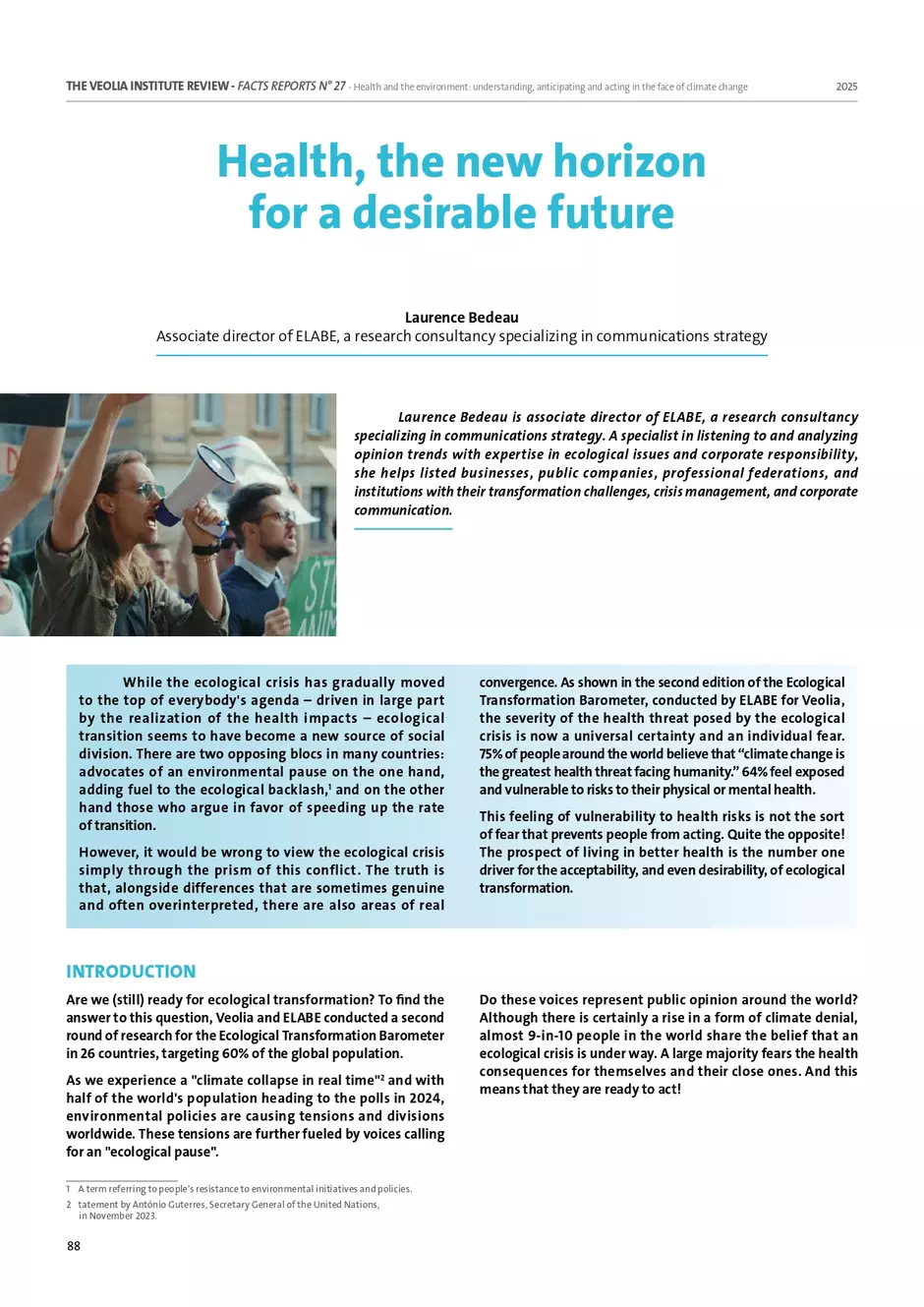Laurence Bedeau
Associate director of ELABE, a research consultancy specializing in communications strategy
While the ecological crisis has gradually moved to the top of everybody's agenda – driven in large part by the realization of the health impacts – ecological transition seems to have become a new source of social division. There are two opposing blocs in many countries: advocates of an environmental pause on the one hand, adding fuel to the ecological backlash, and on the other
hand those who argue in favor of speeding up the rate of transition.
However, it would be wrong to view the ecological crisis simply through the prism of this conflict. The truth is that, alongside differences that are sometimes genuine and often overinterpreted, there are also areas of real convergence. As shown in the second edition of the Ecological Transformation Barometer, conducted by ELABE for Veolia, the severity of the health threat posed by the ecological crisis is now a universal certainty and an individual fear. 75% of people around the world believe that “climate change is the greatest health threat facing humanity.” 64% feel exposed and vulnerable to risks to their physical or mental health.
This feeling of vulnerability to health risks is not the sort of fear that prevents people from acting. Quite the opposite! The prospect of living in better health is the number one driver for the acceptability, and even desirability, of ecological transformation.



